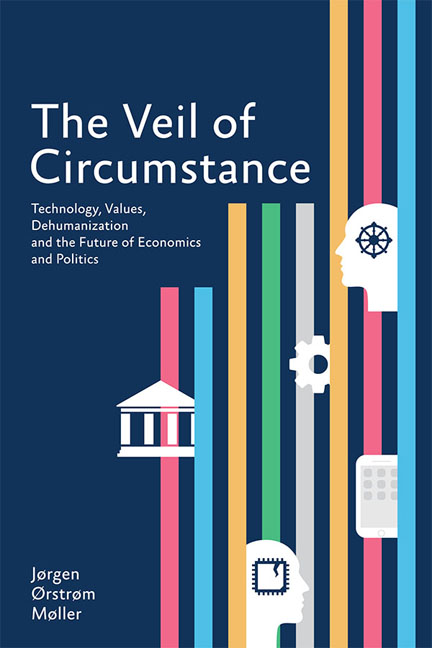 The Veil of Circumstance
The Veil of Circumstance from V - CONCLUSION
Published online by Cambridge University Press: 19 May 2017
Technology and industrialization brought tremendous changes to the way human beings live, how the political system works and how the economic model functions to create growth, distribute benefits and share burdens.
But the biggest and deepest change is in the way human beings interact with each other. How do we treat one another? And how do we view nature? Do we feel an identity or symbiosis with it? Or is nature just another consumer good in our throwaway consumer society?
The explosive growth of human beings, from fewer than one billion prior to industrialization to seven billion now, with a prognosis of nine billion in 2050, is astounding. Assuming a normal (Gaussian) distribution, this means that the proportion of people exhibiting dangerous anti-social behaviour is the same as it was — certainly less than one per cent, and probably far less — but in absolute terms, there are seven times as many of them.
In an agricultural society, where people live in small villages for generations, discipline and self-discipline are essential to survival — as a community, and as individual members of that community. The villagers kept an eye on each other, and if somebody did not respect their common values, peer pressure forced him or her to toe the line. Such a political system could work because the number of people was small and the hierarchy well-known — with the village chief, the regional chief at the next level, and at the top the religious leader or political leader (Emperor, King, or Prince).
The share of people living in urban districts is far higher than before — more than half of the global population. Until around 1950, even the largest cities were collections of neighbourhoods in which a few thousand people lived and worked, where small shops catered to their needs and people knew each other and helped each other.
Cities do not function like that anymore. People do not know each other or help each other very much. In the cities, peer pressure cannot be applied because neighbours are unlikely to share any common values — they come from different cultural groups. The bond between those living in the same place has been broken.
To save this book to your Kindle, first ensure no-reply@cambridge.org is added to your Approved Personal Document E-mail List under your Personal Document Settings on the Manage Your Content and Devices page of your Amazon account. Then enter the ‘name’ part of your Kindle email address below. Find out more about saving to your Kindle.
Note you can select to save to either the @free.kindle.com or @kindle.com variations. ‘@free.kindle.com’ emails are free but can only be saved to your device when it is connected to wi-fi. ‘@kindle.com’ emails can be delivered even when you are not connected to wi-fi, but note that service fees apply.
Find out more about the Kindle Personal Document Service.
To save content items to your account, please confirm that you agree to abide by our usage policies. If this is the first time you use this feature, you will be asked to authorise Cambridge Core to connect with your account. Find out more about saving content to Dropbox.
To save content items to your account, please confirm that you agree to abide by our usage policies. If this is the first time you use this feature, you will be asked to authorise Cambridge Core to connect with your account. Find out more about saving content to Google Drive.